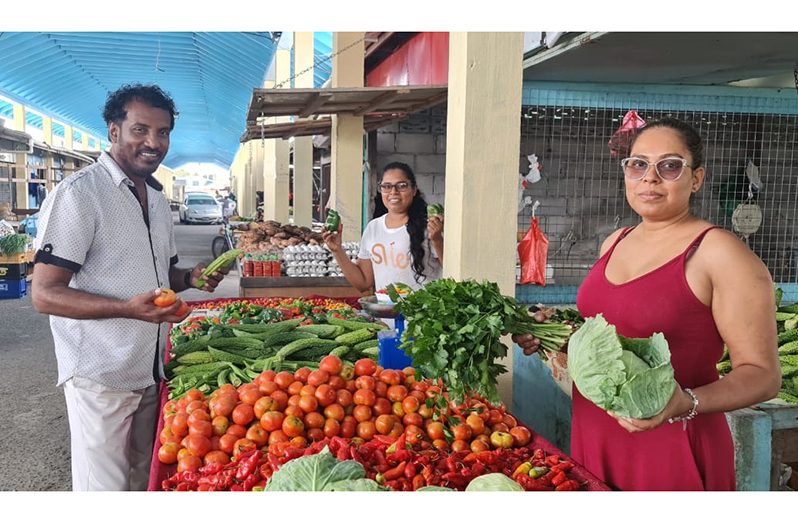PRESIDENT Irfaan Ali’s shade house initiative has been so successful that the Agriculture Ministry will be expanding the project to reach a wider section of young farmers, but the Region Three Private Sector Inc. (R3PSInc) wants more support for current farmers and students in order to ensure that shade houses are seen as essential in food security.
This is according to R3PSInc Head, Halim Khan, who noted that the President’s initiative falls under the Agriculture and Innovation Entrepreneurship Programme which was launched in January 2022 with the aim of initially constructing 25 shade houses.
Khan explained that although the Agriculture Ministry plans to construct an additional 275 shade houses that will benefit farmers across the country, more focus should be placed in Region Three since technical support is needed from the National Agricultural Research and Extension Institute (NAREI) to maximise the region’s potential.
“With the current weather patterns resulting from climate change, the agricultural sector being one of the most vulnerable, [the ministry] needs to push more shade houses and all schools should promote shade house agriculture since in order to promote food security for this and the next generation, all farmers will have to focus on climate related risks and stressors and making use of the limited available natural resources,” Khan told the Sunday Chronicle.
He added that to advance food security throughout the nation, representatives from the public and commercial sectors, civil society, farmers’ organisations, researchers, and employees in the agricultural and other relevant sectors must advance quickly.
Khan said more needs to be done for Region Three farmers in promoting climate-smart agriculture and organic produce in local farming communities.
Aside from shade houses, he said the full utilisation of agro-processing needs to be maximised to save wastage of farmers’ produce.
“As a result of my interactions with farmers, I have come to understand that crops cultivated in shaded areas are more resistant to pests and diseases and are shielded from inclement weather. In fact, farmers’ response to the damaging effects of climate change on the ecosystem may be shade house farming. Also, blossoms growing beneath shaded structures are not destroyed by harsh rain,” Khan explained.
Further, the R3PSInc Head said low labour costs and the requirement for only one person to turn the sprinkler irrigation system on and off are further economic advantages of shade house farming.
Likewise, he added that crops might be cultivated all year long in shaded homes with little upkeep in weed removal. For Guyana to attain food security, indigenous farmers should use this technology.
He said that Region Three farmers are more than willing to grow more and to also contribute to the highly-anticipated Guyana/Barbados food terminal that will be equipped with a processing and packaging plant.



.jpg)









